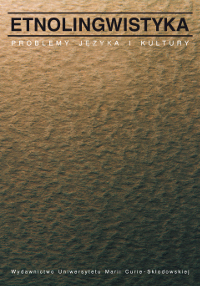Метафоризация информационной деятельности в терминах работы с пространством
SPATIAL METAPHORS IN DESCRIPTIONS OF HUMAN COGNITIVE ACTIVITY
Author(s): Elena RudenkoSubject(s): Language studies, Language and Literature Studies, Applied Linguistics, Cognitive linguistics
Published by: Wydawnictwo Naukowe Uniwersytetu Marii Curie-Sklodowskiej
Keywords: 'COMPUTER MODEL'; HUMAN COGNITIVE PROCESSES; LINGUISTIC WORLDVIEW; SCIENTIFIC MODELS
Summary/Abstract: The article deals with the portion of linguistic worldview concerning consciousness and cognitive activity (the processes of thinking and remembering). Consciousness in the linguistic worldview is presented as a 'container' in which there is another 'container', i.e. memory. Although consciousness and memory are usually considered as the same, the article shows that speakers of Russian distinguish them in precisely that way: consciousness is the place where one manipulates certain mental units, whereas memory is a place where they can be stored. This structure of consciousness, reflected in the naive linguistic worldview, generally correlates with the scientific knowledge about consciousness. The case of the conceptual sphere of cognitive states and processes is different: the linguistic worldview radically differs from modern scientific models. The modeling of human cognitive processes takes place according to the 'computer model' and vice versa: we imagine and describe computer processes according to the patterns of human cognitive activities. Thus, we transfer all our linguistic ideas of human consciousness onto the domain of computers. The human cognitive system and the processing space of the computer are both presented in the Russian naive linguistic worldview as containers, connected to the outside world by means of the channels of the sense organs and speech in the former case and computer peripheral devices in the latter (the monitor, printer, scanner, etc). The 'container' of the computer has the structure analogous to that of the human cognitive system, i.e. memory (vinchester) and the brain (the processor). The authoress then passes on to the sphere of the Internet, which in contrast to the human cognitive system and the processing space of the PC, is understood in a more sophisticated manner. It is captured by means of the metaphor of a 'country' (travelling through the Internet) or an 'ocean' (bad navigation on the site), i.e. as a wide space of a complex structure, with a great number of small objects. It can also be captured by means of the 'road' metaphor.
Journal: Etnolingwistyka. Problemy Języka I Kultury
- Issue Year: 16/2004
- Issue No: 16
- Page Range: 201-213
- Page Count: 13
- Language: Russian

